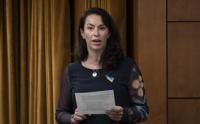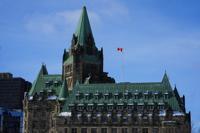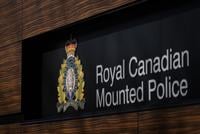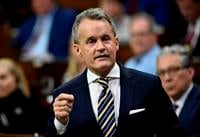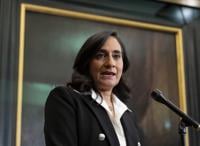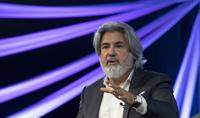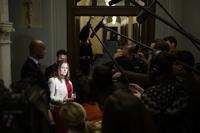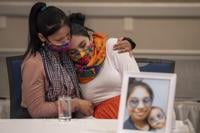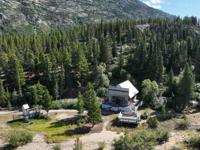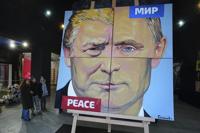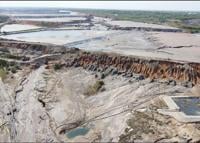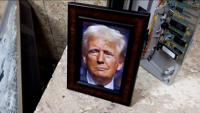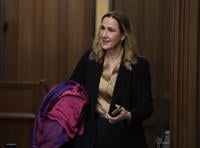OTTAWA - The federal NDP is calling on the Liberal government to ban certain Indian officials from travelling to Canada and to boycott G20 events in India's Kashmir region, citing the country's treatment of minorities.
India started its term Thursday in the rotating presidency of the G20, a forum for the world's largest economies.
The hosting role involves convening meetings throughout the year, which will culminate in a leaders' summit planned for next September in New Delhi.
The NDP said in a press release that it wanted a boycott of India's presidency of the G20, but later narrowed it down to a request that Canada avoid meetings that occur in the region of Kashmir, the site of a protracted conflict with Pakistan.
"The growing number of anti-Muslim and Islamophobic hate crimes, and those toward minorities including Muslims, Sikhs, Christians, Buddhists, LGBTQ+ community, women and Indigenous peoples is appalling," NDP foreign affairs critic Heather McPherson told reporters.
"New Democrats are calling on the government to strongly condemn India's discriminatory anti-minority laws, its threats of ethnic cleansing, the persecution of minorities and the arrests of journalists and human-right activists," she said.
The High Commission of India in Ottawa and the office of Foreign Affairs Minister Mélanie Joly did not immediately respond to requests for comment.
This month, Human Rights Watch reported "a serious regression in human rights and constitutional protections" under Modi, particularly for Muslims.
The group reports that Modi's government is "using draconian sedition, counterterrorism and national security laws to prosecute and harass human rights activists, journalists, students, government critics and peaceful protesters."
In March, India's highest court upheld a ban on Muslim girls wearing headscarves inside schools in the state of Karnataka.
And the human-rights organization says the government has banned foreign funding for thousands of local civil-society groups.
McPherson was joined at a news conference by representatives of the World Sikh Organization and the ºÚÁϳԹÏÍø Council of ºÚÁϳԹÏÍø Muslims, who said the government of Narendra Modi is espousing Hindu nationalism that puts others at risk.
Jaspreet Kaur Bal, the Ontario vice president of the Sikh group, called India a fascist state.
"Sikhs in Canada have repeatedly shared concerns of a lack of safety. We have watched as, through foreign interference, the Indian state has brought its far-right ideology and threats into the lives of ºÚÁϳԹÏÍøs," she said.
McPherson said members of Modi's political party "have called for racist and genocidal violence against Muslims and other minorities in India" and said Ottawa should ban such officials from entering Canada.
The NDP referred to a July report by the ºÚÁϳԹÏÍø Muslims' council that listed 14 senior party members the group accuses of hateful rhetoric and decisions that have displaced Muslims or left them subjected to violence.
Last month, the Trudeau government unveiled plans to form closer ties with India as a key component of its Indo-Pacific Strategy.
"We believe that Canada has an important role to play in ensuring that states with which we engage, and with which we hope to further develop relationships with, have similar human-rights values," McPherson said.
Indian High Commissioner Sanjay Kumar Verma has been critical of NDP Leader Jagmeet Singh for attending rallies run by people who support a separatist movement in an area the Sikhs call Khalistan.
Singh's office has said he supports self-determination and hasn't taken a side in that debate. McPherson would not say Thursday whether the NDP supports a united India.
"With regards to how you want to label it, what I want to see is human rights protected around the world," she responded.
"I want that lens to be applied equally to different countries. I don't think right now we do that. We pick and choose, based on our trade relationships, and I don't think that's the way human rights work."
Bloc Québécois critic Stéphane Bergeron suggested that concerns about human rights don't justify boycotting "the most populous democracy on the planet" when other G20 countries, such as Saudi Arabia, have even worse records.
"I'm just trying understand the logic behind this position taken by the NDP without minimizing, underestimating or denying the existence of discrimination in India," he said in French.
The NDP also called for a boycott of Saudi Arabia when it hosted the G20 in 2020.
This report by ºÚÁϳԹÏÍø was first published Dec. 1, 2022.


